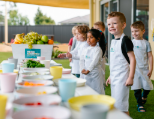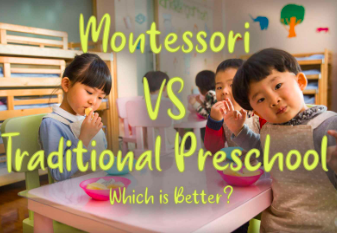A child’s early years are filled with rapid growth—physically, emotionally, and intellectually. While stimulating environments and loving caregivers are essential, one key factor that often goes underappreciated is nutrition. The food children eat plays a powerful role in shaping how well they learn, focus, and thrive during their early learning years.
Why Nutrition Matters for Young Minds
From birth to age five, a child’s brain develops more than at any other stage in life. Proper nutrition fuels this growth. Essential nutrients—like iron, zinc, omega-3 fatty acids, and vitamins A, D, and B-complex—support brain structure, neurotransmitter activity, and cognitive function. Children who eat balanced meals tend to have better attention spans, improved memory, and more energy to engage with learning activities.
Healthy Foods That Support Early Learning
Providing a variety of wholesome foods can help nurture a child’s learning potential. Foods like leafy greens, berries, eggs, beans, whole grains, dairy, and lean proteins are rich in brain-friendly nutrients. For instance, fish such as salmon provides omega-3s that support memory, while whole grains deliver steady energy for active minds.
The Link Between Breakfast and Classroom Focus
Studies have shown that children who start their day with a nutritious breakfast are more likely to perform well in school activities. A combination of protein, fiber, and healthy carbohydrates in the morning can improve concentration and behavior during preschool and kindergarten lessons.
Creating Healthy Habits at Home
Parents and caregivers play a vital role in establishing lifelong eating habits. Involving children in meal planning, offering fruits and vegetables with every meal, and creating routines around family meals can all promote healthy choices. Teaching children about food in a positive and encouraging way also boosts their willingness to try new, nourishing foods.
Collaborating with Early Education Centers
Early learning centers can reinforce good nutrition by providing balanced snacks, encouraging hydration, and incorporating food education into the curriculum. Simple activities, like gardening or food-themed story time, can help children build awareness about healthy eating in fun and engaging ways.
A Holistic Approach to Learning and Growth
Good nutrition is not a standalone solution, but it forms the foundation for successful early education. When paired with supportive teaching, playful learning, and emotional care, a nutritious diet becomes a powerful tool in helping young children reach their full potential.














